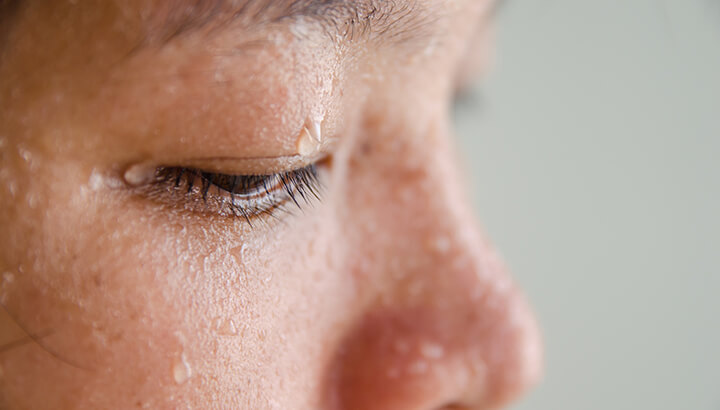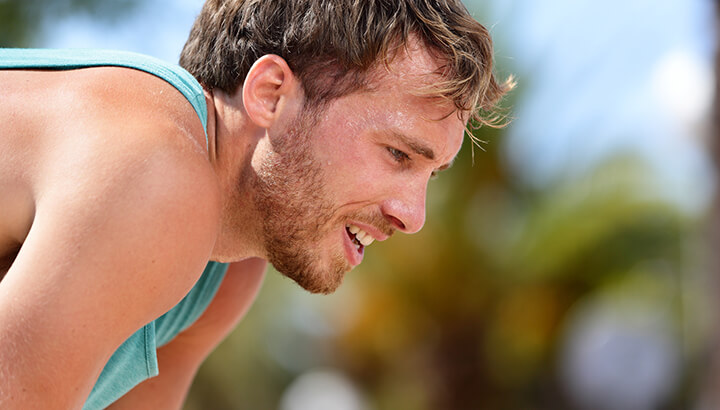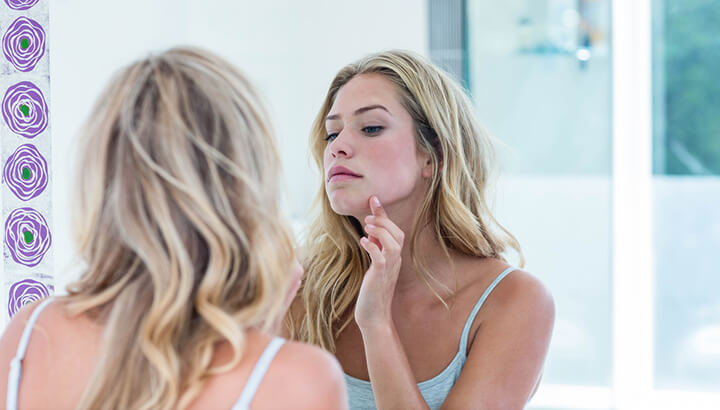
In a society ruled by superficial fashions and obsessive-compulsive cleanliness, sweating is often seen as a bad thing. Sweat at the wrong place or the wrong time can certainly be a bit embarrassing, especially if you’re at work, in a public place or having a nice romantic dinner. I’ve been there and I get it! But what many people don’t realize is that sweating is a healthy, vitally important part of a properly functioning body.
Those sweat stains which keep appearing around the armpits of your work shirt or under your nice new blouse are there for a very good reason. Believe it or not, our bodies expel one liter of sweat on average every single day, which helps to not only cool you down but also perform a range of other vital functions. Here are nine more reasons why sweating is good for you.
1. Detoxification
If there’s one thing that sweating is good for, it’s detoxification. Beyond juicing and other fad-type cleanses and diets, sweating is the number one most efficient way to eliminate toxins from your body.
Sweating flushes a wide range of potential pollutants from your body, including alcohol, cholesterol and certain types of salt. It also banishes many other chemicals and compounds which can otherwise accumulate inside you and create all sorts of trouble. Sweat is the conduit by which these nasties are expunged from the body.
A study published in the Archives of Environmental and Contamination Toxicology sought to gain a deeper understanding of the methods by which bioaccumulated toxins are excreted from the human body. The study found that “many toxic elements appeared to be preferentially excreted through sweat.” Researchers went on to find that many of the toxic compounds found in sweat don’t even show up in blood tests, meaning the spectrum of chemicals excreted through our skin may be more important than previously thought.
2. Healing

Research is only just starting to discover the pivotal role that our sweat glands play in the healing of wounds, scratches and others superficial abrasions. The millions of eccrine sweat glands distributed across our skin may actually play host to stem cells, which are a critical element of wound healing and closure.
A 2012 study published in the Journal Cell found sweat glands to contain four different varieties of adult stem cell populations. These stem cells “display distinct regenerative capabilities and remain unipotent when healing epidermal, myoepithelial-specific and lumenal-specific injuries.” That’s a big deal when it comes to cuts, scrapes and anything “ouchy.”
3. Avoiding kidney stones
Research shows that sweating is good for your kidneys. The process of sweating allows your body to remove excess salt from your bloodstream while retaining the calcium from that salt which your bones so desperately depend on. This process regulates the accumulation of sodium and calcium in your urine, which can otherwise lead to the development of kidney stones.
However, the important thing to remember is that staying hydrated during and after sweating is an important part of combating those pesky kidney stones. That’s because when you sweat more, you lose fluids which would otherwise pass out of your body via urine. This concentrates the calcium and salt in your pee, which can contribute to kidney stones.
To prove this point, a 2004 study sought to quantify the incidence of kidney stones in men who worked in high-temperature areas of a steel factory. It was found that of the 10,326 employees at the steel plant, 181 had suffered from at least one kidney stone incident. Of these 181, more than 50 percent (103) were among the hot-area workers. The hot-area group also had much lower urinary volumes than workers in other areas of the factory. Coincidence? I think not!
4. Antibiotic effect
Forget about the antibacterial or antibiotic ointment in your first aid cabinet — your sweat glands have you covered! When your skin is wounded by cuts, scratches, insect bites and stings, or basically anything which pierces the skin surface, your sweat glands secrete an antibiotic-rich serum. This secretion is your body’s highly effective mechanism for killing off pathogens which might otherwise cause internal infection.
A 2001 study published in the Journal of Nature Immunology found that dermcidin, a potent antimicrobial peptide, is “specifically and constitutively expressed in the sweat glands, secreted into the sweat and transported to the epidermal surface.”
This essentially means that your sweat glands are the only part of your body to produce this important antibiotic agent, which is used to protect your skin from infection. Researchers went on to conclude that “this peptide may help limit infection by potential pathogens in the first few hours following bacterial colonization.”
5. Temperature regulation
Alright, alright — you probably already knew about this one. But it’s so critically important to your survival that we couldn’t not include it! Sweating is the human body’s key mechanism for regulating internal temperature, which rises when we’re stressed, in danger or are exercising (sometimes all three of these things occur at once). When that temperature rises, our bodies expel liquids through sweat, which not only cools our insides but also cools the surface of our skin. This helps to keep us from overheating and hyperventilating.
Beyond this immediate survival mechanism, however, sweating actually helps our brain to recognize how to adapt to changing environmental temperatures. Every time we sweat, our brain notes down the conditions within which this occurred. This helps it to learn from past experiences and become more efficient at cooling and heating the body as required. Turns out you can teach an old brain new tricks!
6. Pleasure hormones

This reason why sweating is good for you is perhaps a little oblique, but it’s relevant nonetheless. Science has proven again and again that exercise makes you happy. Strenuous exercise triggers the release of endorphins in your brain, hormones associated with pleasure that elevate your mood.
Beyond this exercise-endorphin relationship, however, sweating may actually directly impact the release of these “feel-good” hormones. When your body heats up to the point where it needs to sweat, it releases specific temperature-sensitive neurons in your brain that can positively affect your mood.
The more you exercise, the more you sweat. And the more you sweat, the happier you are! Simple. Just don’t overdo it on the exercise front, folks.
7. Cooling and endurance
Kind of like muscles or fine motor skills, it seems that with sweat “if you don’t use it, you lose it.” Well, that might be exaggerating things just a little — of course, you’ll never completely stop sweating, as that would likely prove fatal. But research shows that the more sweating you do, the better you get at it.
If you add plenty of high-intensity workouts and cardio training into your week, your sweat glands will adapt and improve. The result is more efficient cooling when things heat up, helping you to achieve higher levels of endurance and lowering your risk of overheating.
8. Pain reduction
There’s more to endorphins than just pleasure. These hormones, which are released by the brain during intense exercise and sweating, have been shown to act as natural pain relievers. A 2012 study published in the journal Pain Physician found that researchers personally tailoring exercise to patients was an effective way to naturally lower their chronic pain.
Another study, published in the Archives of Physical Medicine and Rehabilitation, sought to examine the role of aerobic exercise in reducing pain. Researchers measured the effects of aerobic exercise on 12 healthy men and women, finding that pain ratings were significantly reduced after exercising for 30 minutes. Unfortunately, this pain-numbing effect wore off around half an hour after completing exercise. This means that you need to exercise on a regular basis to keep pain in check this way. But if that’s not motivation to strap on your gym shoes, I don’t know what is!
9. Zit-destroying effects

Despite the fact that you’re now well beyond your teenage years, those zits still rear their ugly heads from time to time. Rather than reaching for anti-acne creams, which can dry the skin out and actually make the situation worse, maybe a trip down to the sauna is in order! Sweating opens up your pores and helps to expel grease, grime and dirt. When left to accumulate, these compounds encourage bacteria to take up residence in your pores. This leads to the formation of zits.
In this way, sweating provides the most effective, least-harmful way to clear up your skin. But remember, your sweat glands can’t do all the hard work themselves! Once their role of expelling the dirt and grime out of your pores is complete, it’s your turn to clean away the dirt before it becomes embedded in your pores again.
For this reason, it’s always a good idea to take a quick shower after exercising or hitting the sauna. What’s more, if you turn the nozzle to cold at the end of the shower, you’ll close off your pores. This help to prevent them from starting to accumulate that pesky dirt and grime once more.
How to do more sweating
Admit it: sweating is a good thing! There’s plenty of ways to do it, and here are a handful of ways to get you started:
- High-intensity workouts
- Steam rooms
- Saunas
- A raunch in the bedroom
- Hiking up into the hills on a hot day
It doesn’t matter how you do it — just get sweating! What’s your favorite way to get your sweat on?
— Liivi Hess

